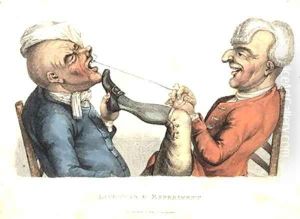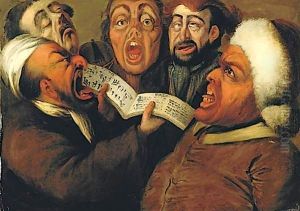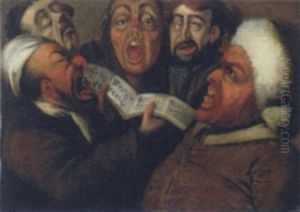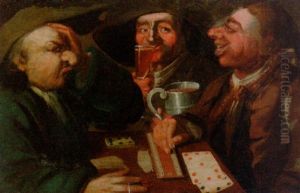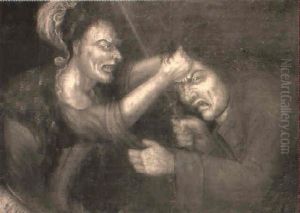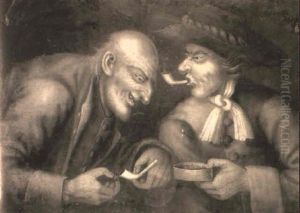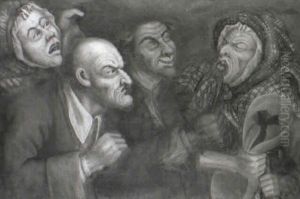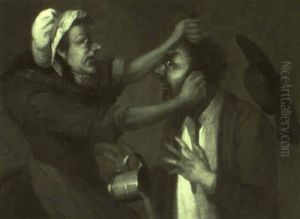John (Tim Bobbin) Collier Paintings
John Collier, who was better known by his pseudonym Tim Bobbin, was an English caricaturist, satirical poet, and illustrator, born in Urmston, Lancashire, England in 1708. He is most often remembered for his humorous and satirical works, which reflected the dialect and the social life of the Lancastrian peasantry. Collier's multifaceted career also included roles as a schoolmaster and a church curate.
Collier's work was heavily influenced by his environment and upbringing. Living in a time when the Industrial Revolution was beginning to transform the English landscape and society, his art captured the effects of these changes on local language and customs. He was particularly adept at using the Lancashire dialect in his writings, which endeared him to local readers but also limited his audience to those who could understand the regional speech.
John Collier's most noted work is 'A View of the Lancashire Dialect by way of Dialogue,' which he published in 1746 under his alias Tim Bobbin. The book is a satirical take on the speech and manners of his contemporaries, and it went through numerous editions, reflecting its popularity. His use of caricature, which was relatively novel at the time, added a vivid and often humorous dimension to his social commentary.
Despite his success as a satirist and illustrator, Collier struggled financially throughout his life. He supplemented his income through his work as a schoolmaster and by taking on the additional duties of a parish clerk and sexton. Sadly, his financial difficulties persisted, and he was known to have sold his books and artworks at low prices to make ends meet.
John Collier passed away in 1786, but his legacy lived on through his works. His observations and depictions of 18th-century Lancashire life provide valuable insights into the era's society and culture. Collier's pioneering efforts in caricature and his distinctive use of dialect in literature have cemented his place in the annals of English art and literary history.
